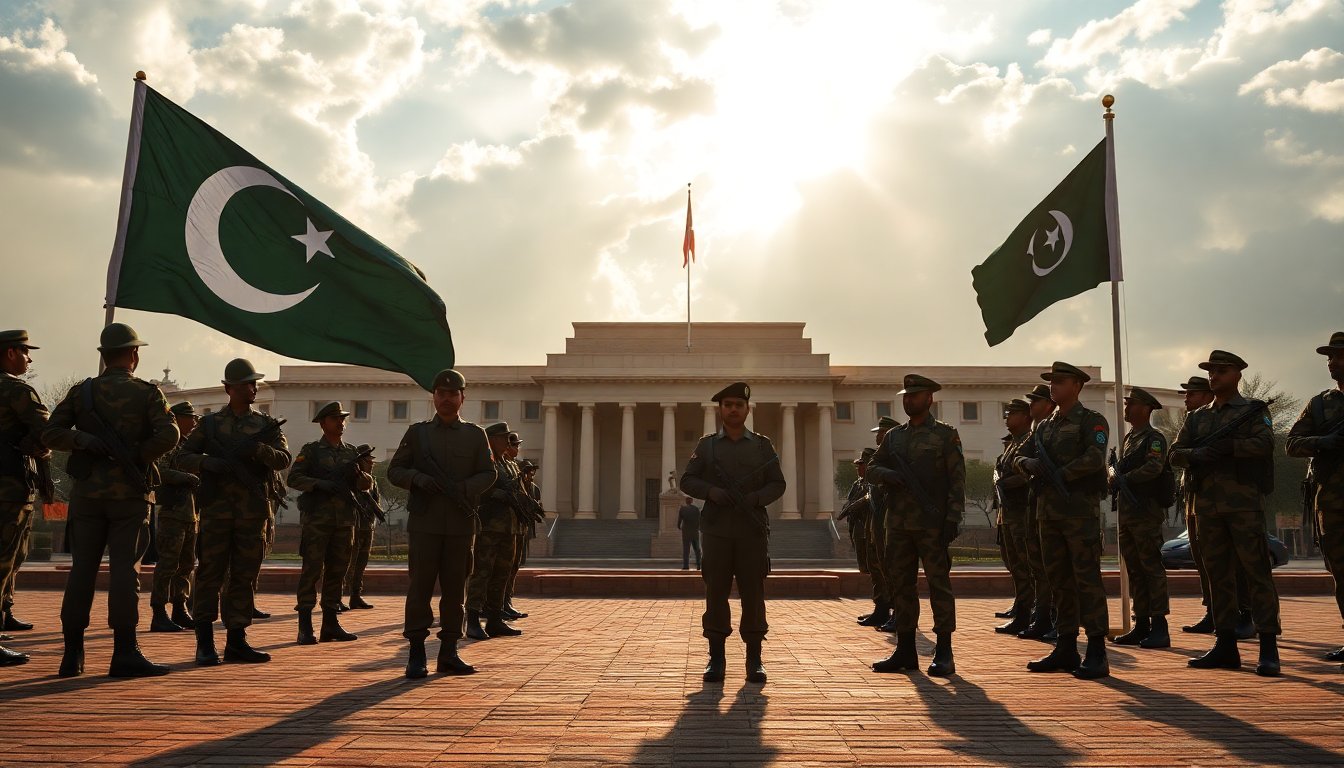Table of Contents
In recent developments, Pakistan’s political landscape has witnessed a significant shift following the approval of constitutional amendments that have substantially increased the power of the military, particularly under the leadership of Field Marshal Asim Munir. These changes grant lifelong immunity from prosecution to Munir and extend his tenure, effectively positioning him beyond the reach of both civilian and military law.
This bold move, passed by Parliament on November 12, reflects a troubling trend toward the consolidation of military power in a country that has historically oscillated between military and civilian rule. Critics are raising alarms about the implications of these changes for Pakistan’s already precarious democracy.
The impact of constitutional amendments
The recent amendments have created a new legal framework that further diminishes the authority of the judiciary in Pakistan. With the establishment of a Federal Constitutional Court, critics argue that the Supreme Court’s powers have been severely curtailed, allowing the ruling coalition to exert greater control over judicial appointments and rulings. This shift poses a threat to the principles of judicial independence and parliamentary supremacy, raising concerns about the erosion of democratic norms.
Reactions from the legal community
In response to these changes, members of the judiciary and legal bodies have expressed their outrage. Two judges from the Supreme Court resigned in protest, citing the amendments as a direct attack on the rule of law. The Sindh Bar Council issued a statement condemning the amendments, labeling them a “coup in disguise” that undermines the integrity of Pakistan’s legal framework.
The rise of Asim Munir
Asim Munir, who became a household name in Pakistan during Operation Bunyan-ul-Marsoos, has rapidly ascended to prominence. His leadership during military operations against external threats has been recognized by the government, culminating in his promotion to field marshal just three years after he took command of the army. His strategic acumen in the face of conflict has earned him both respect and criticism, as many view him as a symbol of the military’s growing influence.
Historical parallels
Analysts have drawn parallels between Munir’s rise and the dynamics of past military coups, particularly the events of 1958 when General Ayub Khan assumed control of the country. This historical reference serves as a sobering reminder of the cycles of military dominance that plague Pakistan’s political history. Dr. Tauseef Ahmed Khan, a prominent human rights advocate, argues that Munir’s ascendancy signals a regression to an era of authoritarian rule.
The implications for domestic politics
The ramifications of these amendments extend beyond the legal sphere, profoundly affecting Pakistan’s domestic politics. With the military’s focus on a security-first governance model, political decision-making has become increasingly subservient to military priorities. This shift is particularly concerning given Pakistan’s ongoing struggles with various insurgent groups, including Islamist militants and Baloch separatists. Many analysts argue that the militarized approach to governance will exacerbate tensions rather than facilitate meaningful dialogue.
Furthermore, the actions taken by the military under Munir’s leadership are likely to stifle any potential for political dialogue, particularly with the Baloch insurgents, who have long demanded greater autonomy and recognition. The military’s persistent invocation of security threats serves to justify its dominance and hinder the development of robust civilian institutions.
The future of foreign relations
As Pakistan navigates this period of military consolidation, questions arise regarding the country’s foreign relations. Historically, Pakistan’s foreign policy, particularly concerning India and Afghanistan, has been heavily influenced by military leadership. Experts suggest that this trend is unlikely to change significantly under Munir’s command, as the military continues to shape Pakistan’s geopolitical stance.
The military’s close ties with both the United States and China are expected to endure. While the U.S. has traditionally engaged with Pakistan through military channels, China’s investments in the China-Pakistan Economic Corridor further entrench military oversight in the region. The military’s role in managing these foreign relationships highlights the complex interplay between domestic governance and international diplomacy.
This bold move, passed by Parliament on November 12, reflects a troubling trend toward the consolidation of military power in a country that has historically oscillated between military and civilian rule. Critics are raising alarms about the implications of these changes for Pakistan’s already precarious democracy.0


